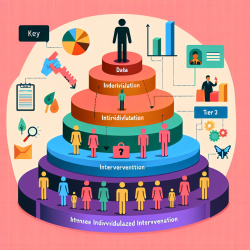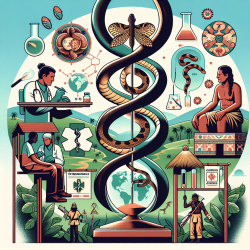Empowering Children's Futures Through Informed Decisions
In the realm of speech-language pathology, making informed decisions based on data and research is crucial to achieving the best outcomes for children. The study "Harm Perceptions and Beliefs about Potential Modified Risk Tobacco Products" offers insights that can be translated into actionable strategies for practitioners in various fields, including online therapy services like those provided by TinyEYE.
Understanding the Research
The research explores perceptions and beliefs about modified risk tobacco products (MRTPs) among current and former smokers. It reveals that while these products are perceived as less harmful than traditional cigarettes, there is still a significant gap in understanding their risks and benefits. The study emphasizes the importance of accurate communication to align public perceptions with scientific evidence.
Applying Research Insights to Practice
As practitioners, we can draw parallels between the communication strategies discussed in the study and our approaches to therapy. Here are some ways to apply these insights:
- Data-Driven Communication: Just as the study highlights the need for accurate risk communication, therapists should rely on data to inform their communication with clients and families. This ensures that therapy goals and strategies are based on evidence and tailored to individual needs.
- Building Trust Through Transparency: The study indicates that mistrust in scientific claims can hinder the acceptance of MRTPs. Similarly, in therapy, being transparent about the methods and expected outcomes can build trust with clients and their families, fostering a collaborative environment.
- Continuous Education: The evolving nature of MRTPs underscores the need for ongoing education. Practitioners should stay informed about the latest research and integrate new findings into their practice to provide the most effective therapy.
Encouraging Further Research
While the study provides valuable insights, it also highlights areas where further research is needed. Practitioners are encouraged to contribute to the body of knowledge by conducting their own research or collaborating with researchers. This not only enhances their practice but also advances the field as a whole.
Conclusion
By leveraging the insights from the study on MRTPs, practitioners can enhance their skills and improve outcomes for children. The principles of data-driven communication, transparency, and continuous education are applicable across disciplines and can lead to more effective therapy interventions.
To read the original research paper, please follow this link: Harm Perceptions and Beliefs about Potential Modified Risk Tobacco Products.










